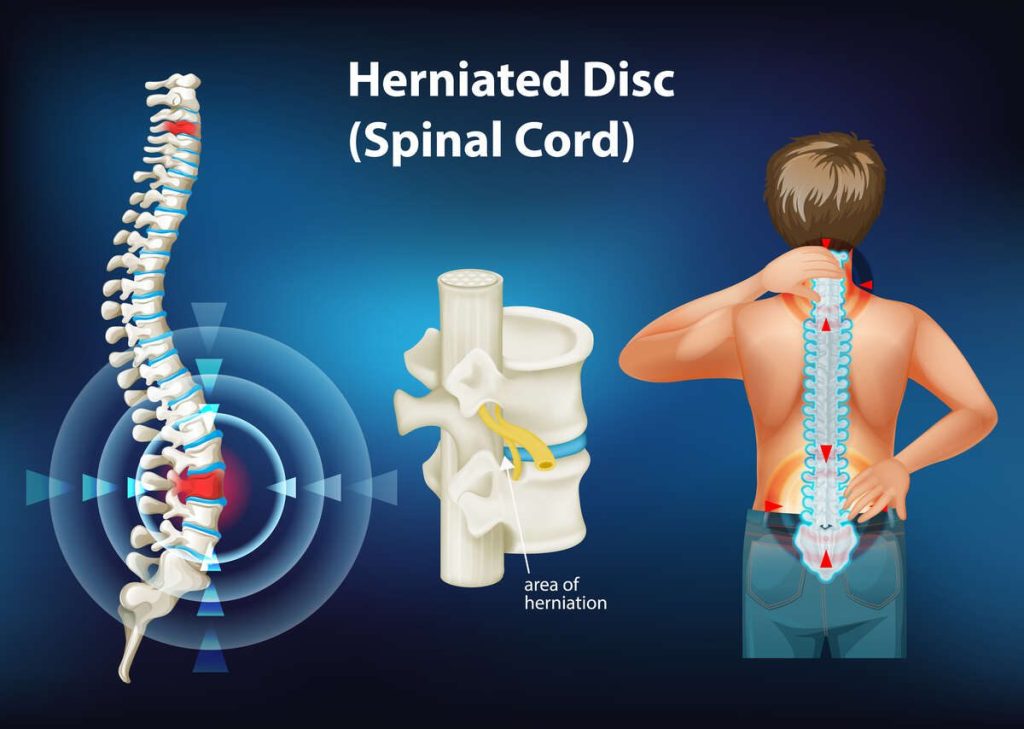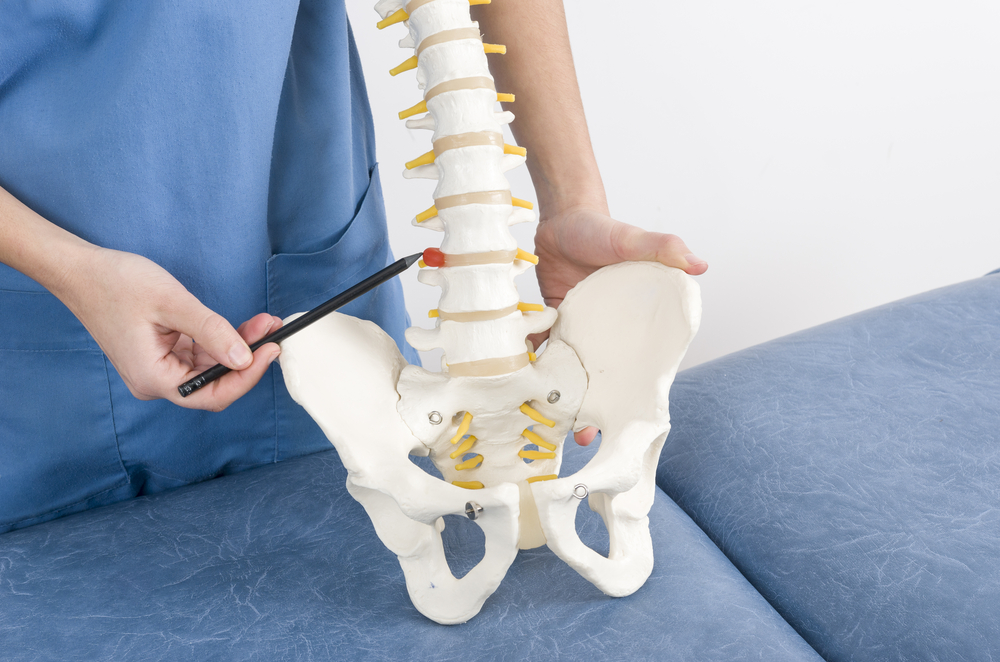LAHORE SPINE CARE
A disc herniation occurs when the gel-like core of a spinal disc bulges out through a tear in its outer layer, potentially compressing nearby nerves. If left untreated, this condition can lead to a variety of long-term effects that impact both physical and emotional well-being. Understanding these potential outcomes can underscore the importance of seeking appropriate medical intervention and adopting strategies to manage the condition effectively.
Table of Contents
TogglePotential Long-Term Effects of Untreated Disc Herniation

1. Chronic Pain
One of the most common long-term effects of untreated disc herniation is persistent or chronic pain. Initially, the pain might be intermittent or manageable with conservative treatments. However, over time, if the herniation is not addressed, pain can become constant and more severe. Chronic pain can affect the quality of life, limiting your ability to perform daily activities and diminishing overall comfort.
2. Nerve Damage
Untreated disc herniation can lead to ongoing compression of spinal nerves. Prolonged pressure on these nerves can cause permanent damage, resulting in symptoms such as:
- Numbness or Tingling: Persistent nerve compression can lead to sensations of numbness or tingling in the areas served by the affected nerves, such as the arms, legs, or buttocks.
- Weakness: Damage to motor nerves may result in muscle weakness, making it difficult to perform tasks requiring strength, such as lifting objects or walking.
- Loss of Reflexes: Reduced reflex responses can occur due to nerve impairment, affecting coordination and balance.

3. Functional Limitations
As nerve damage progresses, functional limitations may become more pronounced. This can impact various aspects of daily life, including:
- Mobility: Difficulty with walking, standing, or changing positions can arise, affecting your ability to engage in physical activities and perform daily tasks.
- Work Performance: Chronic pain and physical limitations may affect your job performance and could potentially lead to absenteeism or a need for job modifications.
4. Reduced Quality of Life
The physical discomfort and limitations associated with untreated disc herniation can lead to a decreased quality of life. The impact of chronic pain, along with potential changes in mobility and function, can affect your ability to participate in social, recreational, and occupational activities. This reduction in activity levels can further contribute to feelings of frustration, isolation, and decreased overall well-being.
5. Emotional and Psychological Effects
Living with chronic pain and functional limitations often takes a toll on mental health. Individuals may experience:
- Depression and Anxiety: Persistent pain and disability can lead to emotional struggles, including depression and anxiety. The stress of dealing with a chronic condition can exacerbate these feelings.
- Sleep Disturbances: Chronic pain can interfere with sleep patterns, leading to insomnia or poor-quality sleep, which further affects overall health and mood.
6. Degenerative Changes
Prolonged pressure on the spinal structures due to an untreated herniated disc can contribute to degenerative changes in the spine, such as:
- Degenerative Disc Disease: Over time, the affected disc may lose its integrity, leading to degenerative disc disease, which can exacerbate pain and reduce spinal function.
- Spinal Stenosis: Chronic pressure on the spinal nerves can lead to narrowing of the spinal canal, known as spinal stenosis, which may require more invasive treatments.


Importance of Early Intervention
Addressing a disc herniation early is crucial to preventing these long-term effects. Effective management typically involves:
- Medical Evaluation: Seeking a thorough evaluation by a healthcare provider can help determine the severity of the herniation and develop an appropriate treatment plan.
- Conservative Treatments: Options such as physical therapy, pain management strategies, and lifestyle modifications can be effective in managing symptoms and preventing progression.
- Surgical Intervention: In cases where conservative treatments are not sufficient, surgical options may be considered to relieve nerve compression and address the herniation directly.
Conclusion
Untreated disc herniation can lead to a range of long-term effects, including chronic pain, nerve damage, functional limitations, and emotional distress. Early diagnosis and intervention are key to managing the condition effectively and minimising potential complications. If you suspect you have a disc herniation or are experiencing symptoms, consultation with a healthcare provider can help you explore appropriate treatment options and improve your quality of life. Taking proactive steps to address the condition can make a significant difference in your long-term health and well-being.
LAHORE SPINE CARE is proudly powered by WordPress